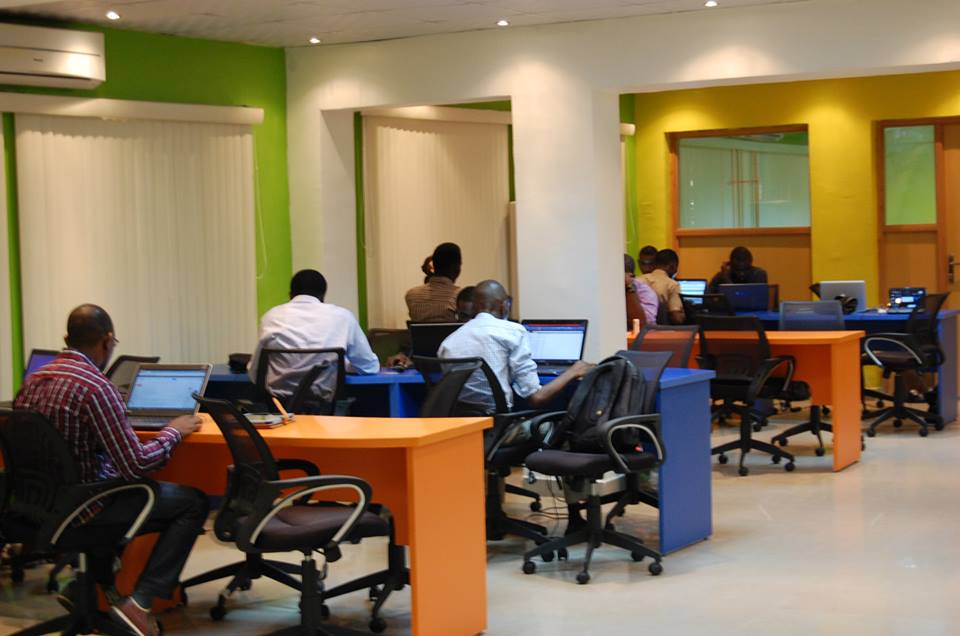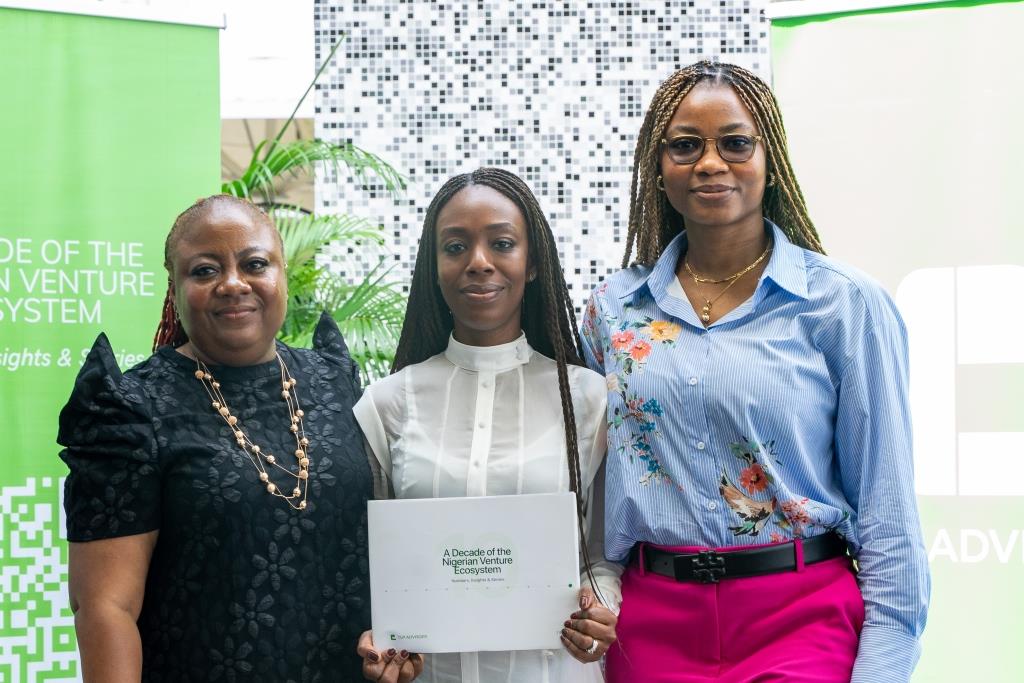Education
CcHUB, Consortium Secure €1.5m for STEM Online Labs

By Dipo Olowookere
A funding package in the tune of €1.5 million has been secured by Nigeria’s leading social innovation centre, Co-creation Hub (CcHUB), and its European and African partners.
The financing package will enable the development of Science Technology Engineering and Mathematics (STEM) online laboratories in secondary schools across Africa.
The consortium will collaborate to adapt, validate, pilot and scale a contextually relevant portal across Africa to accelerate the creation of richer learning environments and outcomes.
The project will also work with existing teacher training organisations and networks to create an ‘Educator’s Network’ comprising of well-trained champions (Master Teachers) who not only deploy the materials in schools but also contribute to the creation of additional content and practices and mentor other teachers.
In a statement on issued on Tuesday by CcHUB, it was explained that the funding, secured through its EdTech practice (re:learn), aims to improve students’ participation in STEM subjects across Africa.
CEO of CcHUB, Mr Bosun Tijani, noted that, “Despite the growing availability of technology resources in schools, there remains a disconnect between resources available and impact achieved, with reviews generally showing that input-based policies on their own are largely ineffective in increasing learning outcomes in the absence of complementary initiatives to improve accountability or pedagogy.”
He said this can be linked to a lack of appropriate and engaging content to stimulate learning in STEM subjects, as well as appropriate know-how on the part of teachers.
“It is therefore important that we shift focus of our education systems from primarily input-based policy towards policies that focus on learning outcomes and this is what has got us excited about GO-GA,” he added,
GO-GA (Go-Lab Goes Africa) is a European Commission funded collaborative project under the Horizon 2020 Research and Innovation Funding Scheme.
GO-GA’s overall purpose is to accelerate the adoption of richer learning environments and improved learning outcomes in science and technology, through the deployment of contextually engaging digital Science Technology Engineering and Mathematics (STEM) in secondary schools across Africa.
GO-GA will create an outreach for, and adapt the successful Go-Lab Ecosystem (consisting of www.golabz.eu and www.graasp.eu) to the needs of teachers and students in Nigeria, Kenya, and Republic of Benin, with built in plans to scale across Africa.
Go-Lab is a leading portal with carefully curated and tested content on science and technology for secondary schools supported by a strong community of teachers, instructors and online laboratories.
Go-Lab (Global Online Science Labs for Inquiry Learning at School) opens up online science laboratories (remote and virtual labs) for the large-scale use in school education, encouraging young people aged from 13-18 to engage in science and engineering disciplines, acquire scientific inquiry skills, and experience the culture of doing science by undertaking active guided experimentation.
The GO-GA project beginning in January 2018, will address these challenges by adapting the Go-Lab ecosystem in schools across Africa. By adapting and localizing the existing Go-Lab portal, GO-GA will make available rich and engaging STEM content for students in secondary schools. This will be achieved by building on Teacher Communities, via the GO-GA inquiry spaces, further equipping teachers to deliver top-quality, engaging STEM education. This will involve the adaptation and localization of the existing Go-Lab platforms to suit the realities of African schools.
Coordinator of GO-GA, Célia Gavaud, while commenting on the development, stated that, “The international dimension of the European Commission funded Horizon 2020 programme supports innovation excellence and industrial competitiveness through collaboration between the best minds of Europe and partner countries all over the world.
“In that context, GO-GA will promote the mutual interests of EU and African partners by ensuring the global reach and adoption of an essential education technology development and market innovation. We are very excited by the prospects of the project!”
GO-GA will be implemented by a consortium of reputable European and African partners in technology, education and teacher training networks across Africa.
They include; École Polytechnique Fédérale de Lausanne (EPFL), (Switzerland), University of Twente, UT (Netherlands), NUCLIO – Núcleo Interactivo de Astronomia (Portugal), IMC Information Multimedia Communication AG (Germany), MITO Technology (Italy), ELimu Elearning Company Limited (Kenya) and EtriLabs (Benin Republic) with CcHUB’s re:learn providing technical leadership.
Education
Hallos Launches Learning247 Summit

By Adedapo Adesanya
Live-learning and creator-economy platform, Hallos, as part of its expansion drive, has unveiled plans to equip millions of youths and women with digital skills and monetisation opportunities through the Learning247 Hallos Summit, aimed at integrating Nigeria’s South-East into the rapidly expanding global creator economy.
At a sensitisation and stakeholder engagement forum in Enugu, the organisation also called for stronger strategic partnerships with government agencies, educational institutions, development organisations, media houses and private-sector stakeholders to advance the creator economy as a credible engine for mass employment, youth prosperity and inclusive economic growth.
The chief executive of Hallos, Mr Alexander Oseji Uzoma, renewed the call for increased investment in internet penetration, reliable power supply, digital infrastructure, creative studios and youth-focused innovation hubs across Nigeria, especially the South-East.
Describing the creator economy as one of the most accessible and scalable employment frontiers globally, he noted that with basic tools such as a smartphone, internet access and creative skills, young people can build audiences, monetise knowledge and generate sustainable income without heavy capital investment or long career pathways.
According to Mr Uzoma, the creator economy offers low-barrier entry into diverse professions, including content creation, social media influencing, live tutoring and digital coaching, video production, podcasting, graphic design, music and performance arts, digital marketing, merchandise design, e-commerce and community management. These activities support a broader value chain spanning production, distribution, technology and management.
The Hallos co-founder also explained that global projections place the creator economy in the hundreds of billions of dollars, with millions of creators worldwide earning sustainable incomes, stressing that Hallos is focused on localising these opportunities to ensure African youths can participate meaningfully and compete globally.
He further noted that Hallos operates a live-learning and creator-focused platform that integrates education, gamified quizzes, merchandising and voluntary fan donations into a single ecosystem. Through the platform, creators can host live learning sessions and masterclasses, earn from quizzes and challenges, sell branded merchandise, receive voluntary donations, build communities around their expertise and organise monetisable podcasts.
Mr Uzoma said the creator economy, driven by social media platforms, streaming services, digital commerce and content monetisation tools, has evolved into a major global industry capable of generating wealth, creating jobs and expanding export earnings.
He stressed that social media should no longer be viewed as a recreational space but as a viable business environment for wealth creation.
“The focus should not just be on content creation alone but on building businesses around content. It is about value creation and structured digital entrepreneurship,” he said.
He disclosed that Hallos intends to reach about 10 million youths nationwide, with over 5,000 already engaged across its programmes, while placing strong emphasis on bridging the gender gap by empowering women and girls through targeted digital training, mentorship and access to monetisation platforms.
As the digital economy continues to expand, Hallos said the creator economy stands out as a practical and scalable solution to youth unemployment, offering low entry barriers and global earning potential.
The company reaffirmed its commitment to bridging the gap between talent and income, enabling young Africans to earn well above minimum wage through creativity, knowledge and structured participation in the global digital economy.
Education
Bayero University PG Students to Enjoy Dangote’s N1.5bn Scholarship

By Modupe Gbadeyanka
Post-graduate students of Bayero University Kano (BUK) will benefit from a scholarship worth about N1.5 billion from the Aliko Dangote Foundation (ADF).
The businessman put down the funds to support eligible MBA, entrepreneurship, and management postgraduate students of the institution under an initiative known as MHF Dangote Graduate Business Scholarship.
At a ceremony on Tuesday, the foundation and the school signed a Memorandum of Understanding (MoU) at the auditorium of the Dangote Business School, Kano.
The deal is to provide N300 million annually over five years as scholarship awards to the beneficiaries, who will receive N150,000 each per session, beginning with the 2024/25 academic session. This is equivalent to 50 per cent of the current N300,000 fee paid by the post-graduate students. There are 1,225 students in the Business School (696 fresh and 529 returning students).
One of the beneficiaries, Mr Khalid Bababubu, who is into manufacturing and specialises in MBA, Finance and Investment, thanked the organisation for the gesture.
“We are happy to be beneficiaries of this initiative. Education is the bedrock of national development, and we will not take this scholarship for granted,” he said.
A representative of ADF, Ms Mariya Aliko Dangote, said, “Our vision at the Foundation is to build human capital that translates into economic opportunity.
“Strengthening business and entrepreneurship education is critical to turning knowledge into enterprise, innovation, and jobs. This scholarship deepens our commitment to Dangote Business School by investing directly in the next generation of business leaders and change-makers.”
On his part, the Vice Chancellor of Bayero University Kano, Prof. Haruna Musa, said, “This support comes at a critical time for many families. Beyond financial relief, it strengthens the Business School’s role as a centre for developing entrepreneurial and management talent, particularly for women who are increasingly taking leadership roles in enterprise.”
It was explained that newly admitted students will receive automatic tuition reductions during registration, and returning students who have already paid in full will receive rebates. The N300 million allocation is structured to cover all eligible postgraduate students based on current enrolment capacity.
Any unutilised balance in the first year will be retained within the Dangote Business School development envelope to strengthen learning infrastructure and digital academic capacity, ensuring continued enhancement of the academic environment.
The MHF Dangote Graduate Business Scholarship is distinct from ADF’s recently announced nationwide STEM education interventions.
Education
Entries for InterswitchSPAK 8.0 Begin, Over N40m up for Grabs

By Aduragbemi Omiyale
Senior secondary school students across Nigeria have been invited to apply and demonstrate their academic excellence on a national stage in the eighth edition of the prestigious national science competition known as InterswitchSPAK.
The contest is organised by Interswitch, Africa’s leading technology company focused on creating solutions that enable individuals and communities prosper.
Registration for InterswitchSPAK 8.0 via www.interswitchspak.com has opened and will close on Friday, May 24, 2026. For the first time, in addition to group registrations through schools, parents can also register their individual children for the competition.
This year’s edition features a scholarship pool exceeding N40 million, with Interswitch expanding the prize structure to ensure broader impact.
The overall winner will receive a N15 million tertiary scholarship, including monthly stipends. The first runner-up will be awarded a N10 million scholarship, including monthly stipends; while the second runner-up will receive a N5 million scholarship, also including monthly stipends. All scholarships are payable over 5 years. Also, the top 9 finalists will all receive brand new laptops and other exciting prizes.
In addition to the top prizes, Season 8 introduces enhanced rewards for student finalists ranked 4th to 9th, as well as increased recognition for teachers supporting qualifying students from 1st to 9th place. This expanded structure reinforces Interswitch’s commitment to rewarding academic excellence and recognising the critical role educators play in shaping student success.
“At Interswitch, we strongly believe that Nigeria’s future will be shaped by how well we nurture today’s young minds. InterswitchSPAK goes beyond competition; it is a long-term commitment to empowering students and supporting teachers who are laying the foundation for innovation, problem-solving, and national development.
“As we launch Season 8, we remain focused on creating opportunity, rewarding merit, and inspiring excellence across Nigeria,” the Executive Vice President for Group Marketing and Communications at Interswitch, Ms Cherry Eromosele, said.
Designed to empower young minds in the Science, Technology, Engineering, and Mathematics (STEM) areas, InterswitchSPAK identifies, nurtures, and rewards students while equipping them with the skills and knowledge required to excel in STEM fields and drive innovation.
Over the past seven seasons, InterswitchSPAK has positively impacted thousands of students across the country, offering full university scholarships, mentorship opportunities, and national recognition for outstanding academic performance.
Beyond these rewards, the programme has consistently reinforced the importance of STEM education as a critical driver of innovation, problem-solving, and sustainable national development.
Through a transparent, technology-enabled selection process, InterswitchSPAK has also promoted educational equity by providing students from diverse socio-economic backgrounds with equal access to opportunity, ensuring that performance and merit remain central to success.
-

 Feature/OPED6 years ago
Feature/OPED6 years agoDavos was Different this year
-
Travel/Tourism10 years ago
Lagos Seals Western Lodge Hotel In Ikorodu
-

 Showbiz3 years ago
Showbiz3 years agoEstranged Lover Releases Videos of Empress Njamah Bathing
-

 Banking8 years ago
Banking8 years agoSort Codes of GTBank Branches in Nigeria
-

 Economy3 years ago
Economy3 years agoSubsidy Removal: CNG at N130 Per Litre Cheaper Than Petrol—IPMAN
-

 Banking3 years ago
Banking3 years agoSort Codes of UBA Branches in Nigeria
-

 Banking3 years ago
Banking3 years agoFirst Bank Announces Planned Downtime
-

 Sports3 years ago
Sports3 years agoHighest Paid Nigerian Footballer – How Much Do Nigerian Footballers Earn


















